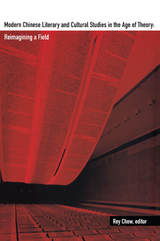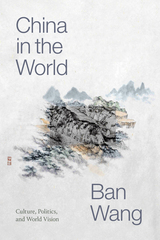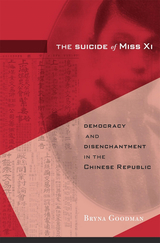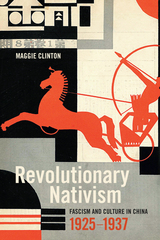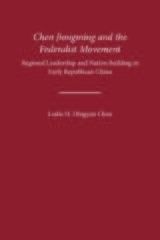Revolutionary Nativism: Fascism and Culture in China, 1925-1937
Duke University Press, 2017
Paper: 978-0-8223-6377-4 | Cloth: 978-0-8223-6362-0 | eISBN: 978-0-8223-7303-2
Library of Congress Classification DS777.48.C59 2017
See other books on: 1912-1949 | 1928-1937 | Fascism | Fascism & Totalitarianism | Politics and culture
See other titles from Duke University Press
Paper: 978-0-8223-6377-4 | Cloth: 978-0-8223-6362-0 | eISBN: 978-0-8223-7303-2
Library of Congress Classification DS777.48.C59 2017
ABOUT THIS BOOK | AUTHOR BIOGRAPHY | REVIEWS | TOC | REQUEST ACCESSIBLE FILE
ABOUT THIS BOOK
In Revolutionary Nativism Maggie Clinton traces the history and cultural politics of fascist organizations that operated under the umbrella of the Chinese Nationalist Party (GMD) during the 1920s and 1930s. Clinton argues that fascism was not imported to China from Europe or Japan; rather it emerged from the charged social conditions that prevailed in the country's southern and coastal regions during the interwar period. These fascist groups were led by young militants who believed that reviving China's Confucian "national spirit" could foster the discipline and social cohesion necessary to defend China against imperialism and Communism and to develop formidable industrial and military capacities, thereby securing national strength in a competitive international arena. Fascists within the GMD deployed modernist aesthetics in their literature and art while justifying their anti-Communist violence with nativist discourse. Showing how the GMD's fascist factions popularized a virulently nationalist rhetoric that linked Confucianism with a specific path of industrial development, Clinton sheds new light on the complex dynamics of Chinese nationalism and modernity.
See other books on: 1912-1949 | 1928-1937 | Fascism | Fascism & Totalitarianism | Politics and culture
See other titles from Duke University Press

